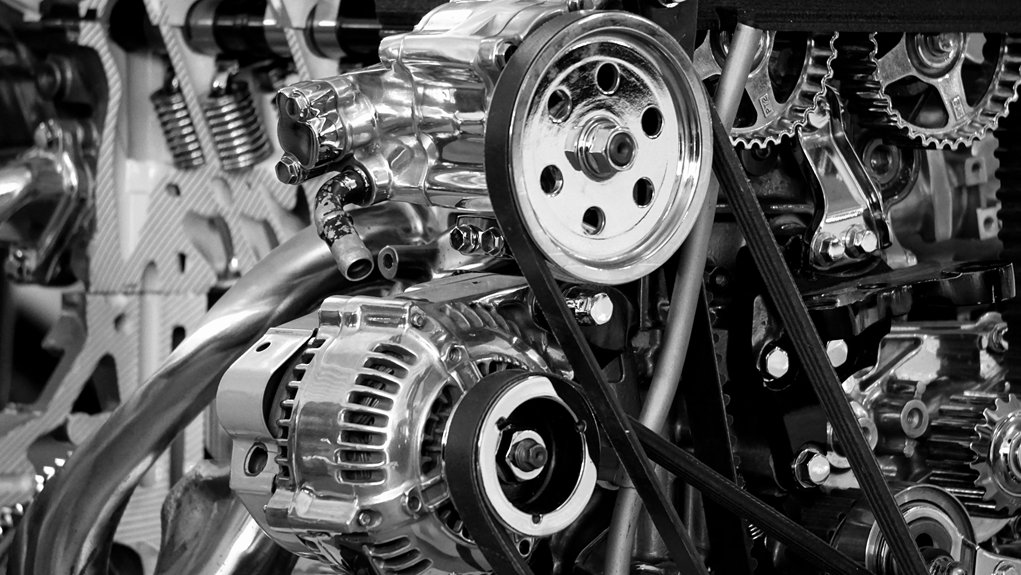Your transmission is crucial to your vehicle’s performance, and taking steps to extend its lifespan can save you money and hassle down the road. By staying on top of routine maintenance and being mindful of how you drive, you can prevent many common issues before they start. But what exactly should you do to keep your transmission running smoothly for years to come? Let’s explore some key strategies that can make a real difference.
Regularly Check and Change Transmission Fluid
To keep your transmission running smoothly, you should regularly check and change the transmission fluid. Over time, fluid contamination can occur, introducing dirt, debris, and metal particles that impair performance.
Worn seals may leak fluid, leading to low levels and inconsistent operation. Regular inspections help catch these issues early, preventing further damage.
Changing the fluid as recommended flushes out contaminants and replenishes lubricants, reducing seal wear and ensuring proper fluid flow.
Consistent maintenance keeps your transmission in top shape, extends its lifespan, and avoids costly repairs down the line. Stay proactive by monitoring fluid condition and replacing it when needed.
Use the Correct Transmission Fluid Type
Using the correct transmission fluid type is essential for ideal performance and longevity. You need to verify fluid compatibility with your vehicle’s transmission to prevent damage and maintain smooth operation. Always check your owner’s manual or consult your mechanic to identify the recommended fluid. Proper additive selection also plays a role; some fluids contain conditioners that protect internal components and improve shifting. Using incompatible fluids or incorrect additives can cause slipping, overheating, or premature wear. Additionally, choosing high-quality transmission parts and fluids from trusted vendors ensures long-term reliability and optimal performance.
Avoid Overloading Your Vehicle
Overloading your vehicle puts unnecessary strain on the transmission, increasing the risk of damage and reducing its lifespan. Overloading risks can cause the transmission to overheat and wear out faster. Always check your vehicle’s weight limits and avoid carrying more than recommended.
Proper cargo safety guarantees that your load is evenly distributed and secured, preventing shifting that could harm the transmission. Overloading not only affects transmission health but also compromises braking, steering, and overall vehicle safety.
Keep within your vehicle’s capacity to protect your transmission and ensure safe, reliable driving. Remember, less weight means less stress on your transmission and longer vehicle life.
Practice Smooth Shifting Techniques
Practicing smooth shifting techniques helps protect your transmission from unnecessary wear and tear. Focus on gentle gear shifting and precise clutch control to avoid rough progressions that strain components.
When shifting gears, ease off the accelerator gradually and engage the clutch smoothly, avoiding abrupt movements. Proper gear shifting reduces stress on your transmission and prevents premature failure.
Over time, consistent smooth shifting extends the lifespan of your transmission system. Remember, patience and finesse in clutch control are key.
Keep the Cooling System in Good Condition
To keep your vehicle’s cooling system in good condition, regular maintenance is essential. Check for coolant leaks, which can cause overheating and damage your transmission. Keep an eye on coolant levels and top off as needed.
Radiator maintenance is vital—flush the system periodically to prevent rust and debris buildup that impair cooling efficiency. Ensure the radiator cap seals properly and look for cracks or leaks.
A well-maintained cooling system helps regulate engine temperature, reducing strain on your transmission. By staying attentive to coolant leaks and performing routine radiator maintenance, you extend your transmission’s lifespan and keep your vehicle running smoothly.
Schedule Routine Transmission Inspections
Regularly scheduling transmission inspections helps catch potential issues early before they cause major damage. During these inspections, a technician checks for fluid contamination, which can impair transmission performance.
They’ll also assess fluid levels and condition, recommending a transmission flush if the fluid appears dirty or degraded. Addressing fluid contamination promptly prevents more serious problems like slipping or overheating.
Routine inspections ensure your transmission stays properly lubricated and functioning smoothly, extending its lifespan. Don’t wait for warning signs—schedule regular inspections to maintain peak performance and avoid costly repairs down the line.
Consistent care keeps your transmission in top shape for years to come.
Address Repairs Promptly and Preventively
Addressing transmission repairs promptly can considerably extend its lifespan and prevent small issues from escalating into costly damage. If you notice fluid leaks under your vehicle or shifting problems, don’t delay repairs. Fluid leaks can lead to low transmission fluid levels, causing overheating and damage.
Regularly getting a transmission flush helps remove debris and old fluid, reducing wear. Catching issues early and performing preventive maintenance keeps your transmission healthy and reliable.
Ignoring small problems might save money now, but it can lead to expensive repairs later. Stay attentive, act quickly, and schedule repairs as soon as you detect any signs of trouble.
Conclusion
By staying on top of regular fluid checks, using the right type, and practicing smooth driving, you can greatly extend your transmission’s lifespan. Keep your cooling system in good shape, avoid overloads, and schedule routine inspections to catch issues early. Address repairs promptly to prevent costly damage. To ensure your transmission remains reliable and performs well for years to come, schedule your free TransScan or book an appointment today by calling us at (919) 471-2506 or visit us online at Durham Transmission.

